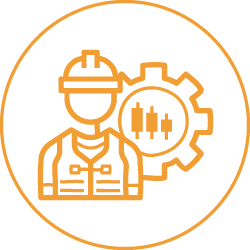
Construction Audit
Your project is underway, but is everything being constructed correctly?
Our construction audit is a thorough, detailed inspection of construction and oversight activities. We review your project and identify areas where construction and oversight are exceeding, meeting and falling below industry standard expectations.
A full audit is very in-depth and typically consists of:
- an interview with the owner’s site representative(s)
- a detailed review of the governing construction documents (material manufacturer’s guidance documents, installer’s installation manual, project specifications, CQA plan, etc.)
- extensive time in the field evaluating the performance, knowledge, and capabilities of the installer and quality assurance or quality control firm
- observing daily tailgate meetings, weekly meetings and other communication
- a comprehensive findings report is issued to the client which provides a heat map of any observed issues and how likely they are to lead to short or long-term problems

Email Us for a FREE sample Construction Audit.
Our audits have literally saved site owners millions of dollars!
All decision-making parties — this includes Owners, Engineers, Contractors, Manufacturers and Installers — can benefit from a construction audit. Whether you are too busy to personally performing an inspection or need an expert to offer additional input, a CQAS Construction Audit can give you necessary peace of mind.
We have decades of experience, mobilize rapidly, work efficiently and report significant findings to you immediately. You can trust the team that helped produce a 493-acre installation that was certified with ZERO LEAKS.
Want to see a sample report that details our work? Download our FREE excerpt.
(And, to learn even more about our Construction Audit Services, see our FAQ below.)


Vendor Management Program
Make sure the people constructing your asset are qualified to do so.
Our Vendor Management Program (VMP) provides an “apples to apples” comparison between firms and personnel potentially involved in the project.
Many owners have realized that resumes often do not truly reflect the true abilities or knowledge of individual personnel, and the current certifications also are misleading in many instances. For instance, George Koerner has acknowledged the current GCI-ICP inspector certification is lacking when it comes to field knowledge.

Proprietary Testing Platform
CQAS has developed an extensive testing platform for QA/QC personnel that rates each person within 5 levels of expertise, based on standardized criteria, skill sets, and knowledge required for each level.
We were the first to promote an entry level training/skill set that starts with zero experience. A vast majority of technicians and vendors working on or around geosynthetics have no idea of how easily damaged the material is, the importance of conveying damages to the right people such that they can be fixed, or even knowledge of the function of geosynthetics and clay liners. It is important that anyone working on or around geosynthetics have a basic understanding and knowledge.
We will even develop a customized certification platform based on your company’s individual needs.

Constructibility Review
Know if your plans can succeed before the first shovel is turned.
Your biggest vulnerability is not knowing what you don’t know even before you begin.
Are you convinced your project plans are actually constructible? Should you accept that they are just because someone with a degree signed off on them? How about the material? Is what the specs call for really what’s best for the project?
What do you do? Just trust that everything will work out?
Our Constructibility Review will examine your project and tell you what problems and vulnerabilities are lurking. We are industry experts with more than 60 years combined industry knowledge in all phases of project construction.
Expert Analysis
Failure Analysis
There are a multitude of reasons problems may develop on your project, but most of them will always stem from things that happened prior to or during construction. CQAS has helped our clients successfully get to the origins of:
Geomembrane leaks discovered post-construction, caused by:
- Material failures
- Seam failures
- Poor workmanship
- Poor oversight (CQA)
- Poor design
- Tank liner failures
- Impoundment liner failures
Expert Witness
When you need a witness, you want them to be into the details — details that will make or break your case. CQAS has found the details others missed in all of our client’s cases.
Sometimes, it’s not easy but that’s where our extensive field experience and expansive network allows us to draw from things we’ve seen and put two and two together equaling a formula that is a win for our clients.
Frequently Asked Questions
What is a Construction Audit?
A construction audit is an in-depth study of your project that will provide an unbiased, honest determination of whether your project quality goals are being achieved and the impact they may have on the long-term viability of the project.
There are many components to a construction audit that can be customized on a client-by-client basis. These components can be generalized under the following tasks:
-
- Review of project documents (Project Specifications, CQA Plan, Project Drawings, Manufacturer’s Documents, Installer’s Guidance Documents, etc.)
-
- Cross-checking these documents for uniformity
- Checking to see if these documents align with current industry standards
-
- Review of project documents (Project Specifications, CQA Plan, Project Drawings, Manufacturer’s Documents, Installer’s Guidance Documents, etc.)
- Field observation of construction practices
-
- Review of documentation practices
- Review of management practices
-
Who should consider a construction audit?
Owners, Engineers, Contractors, Manufacturers and Installers all should consider a construction audit. The audit can offer peace of mind to the conscientious individual who is too busy to personally perform an inspection, or who may want an expert opinion to substantiate their belief or opinion.
What value is provided in a construction audit?
The main goal is to ensure conformance to the clients standards with timely, professional feedback that not only identifies problems others cannot (or they choose to overlook), but allows any such problems to be fixed such that they do not propagate into something larger throughout the course of the project. This can be summarized as follows:
Owner: Detailed information on the performance of each vendor selected for the audit.
Manufacturer: Ensure their material is being installed to their standards and provide vital information on the installation process to ensure it is not doing anything that might compromise the material/warranty.
General Contractor: A general contractor can also obtain detailed information on the performance of each vendor selected for the audit
Installer: Obtain detailed information on whether the crew is meeting the installation standards set forth by the company or even obtain a second opinion on the Engineer/QA firm.
Engineer: Obtain detailed information on their QA crew and whether they are meeting the standards set forth by the company or even obtain a second opinion on the Installer.
What parties are observed?
We try to review all parties during an audit, including the owner, but again our role is sometimes tailored to meet client needs. Based on client feedback, we have continually heard that the owners appreciate anything that helps them successfully manage a project.
What do you look for during a construction audit?
In addition to the document review, the construction audit is geared towards ensuring all parties (namely QA firm, Installer, and General Contractor) are performing their work in accordance with the site-specific guidance documents, and to industry standards. The auditors will also make recommendations to the client on ways to potentially improve efficiencies.
When is the best time for a construction audit to be performed?
A construction audit can take place anytime during a project, and multiple visits could be necessary in order to evaluate different activities by different vendors. Ideally, an audit would be performed early in each construction phase which allows corrections to any issues to be made moving forward throughout the remainder of the project. Ideally, the audit can be performed when the greatest amount of activities are taking place, including weekly or monthly meetings.
Why hire CQAS?
Our pooled resources include industry leaders Glen Toepfer (CQA) and Brent Duganeiro (CQA), who were an instrumental part of the Zero Leak, 493-acre geomembrane installation at the Palo Verde Nuclear Generating Station which occurred from 2009 through 2012.
What type of feedback is given during a construction audit?
The results of the construction audit are formally summarized in a written Construction Audit Findings Report. This report summarizes the conditions that were observed during the auditors’ time on site, providing an overall written synopsis of the findings before delving into the specific details that often make or break a project.
Does the auditor interact with the vendors on-site and what is done when problems are observed?
All problems are summarized in the findings report. Problems that pose an immediate risk to short or long-term quality are brought to the immediate attention of the parties involved first, then immediately to the owner, such that resolution can occur before the problem propagates into something much larger. An example of an immediate problem would be using the wrong geomembrane or wrong welding rod, whereas using unrounded clamps for liner placement may not be as pressing an issue but still needs to be resolved. The client will be briefed daily on all findings.
Should the construction audit be performed discretely, or announced to the contractors?
This is completely up to the party contracting out the auditing services. Experience has shown that some parties take the audit seriously if given advance notice, and others do not.
What is the overall cost for an audit?
The overall cost of the audit obviously varies from site to site and project to project, depending on the level of activity. Overall, the cost is very low in comparison to the overall project construction costs and can prove invaluable when problems that otherwise may have gone unnoticed were caught and remediated.


